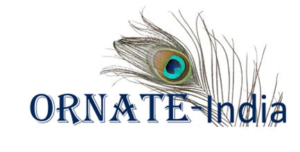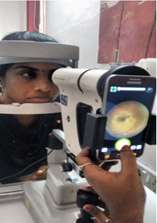Departments
Donec pede justo, fringilla vel, aliquet nec, vulputate eget, arcu.
Medical Services
Lorem ipsum dolor sit amet, consectetlit. Aenean eget dolor.
Research
Cras dapibus. Vivamus elementum semper. Aenean vulputate tellus.
Easy Appointments
Lorem ipsum dolor sit amet, consectetuer adipiscing elit. Aenean commodo ligula eget dolor.
Top Equipment
Aenean massa. Cum sociis natoque penatibus et magnis dis parturient montes, nascetur ridiculus mus.
Vaccination
Donec quam felis, ultricies nec, pellentesque eu, pretium quis, sem. Nulla consequat massa quis enim.
Regular checks
Lorem ipsum dolor sit amet, consectetuer adipiscing elit. Aenean commodo ligula eget dolor.
ORNATE-India study
ORNATE India is a multidisciplinary, multifaceted UK-India collaborative study,which aims to build research capacity and capability in India and the UK to tackle the global burden of diabetes-related visual impairment, funded by Global Challenges Research Fund and UKRI.
Diabetes is a worldwide epidemic. Nearly 80% of adults with diabetes reside in low-middle income countries (LMIC) where primary care infrastructure is in its infancy, fuelling the global challenge of managing diabetes and its complications. Un-diagnosed diabetes is a significant problem in these countries and a high proportion of people are only diagnosed when they present with a disease-related complication.
Map of prevalence of diagnosed diabetes in districts of India (Akhtar SN, Dhillon P. J Soc Health Diabetes 2017;5:28-26)
Facts about diabetes in India
- Diabetes is fast gaining the status of a potential epidemic in India with more than 77 million people currently diagnosed with the disease and this is expected to increase to over 100 million by 2030.
- In addition, there are approximately 44 million with undiagnosed diabetes
- Diabetes is continuing to increase as a result of rapid cultural and social changes, which include: ageing populations, increasing urbanization, dietary changes, reduced physical activity and unhealthy behaviour
- The prevalence of the disease ranges from 5–17%, with higher levels found in the southern part of the country and in urban areas.
Appointments
Donec pede justo, fringilla vel, aliquet nec, vulputate eget, arcu.
Drug Store
Lorem ipsum dolor sit amet, consectetlit. Aenean eget dolor.
Dental check
Cras dapibus. Vivamus elementum semper. Aenean vulputate tellus.










